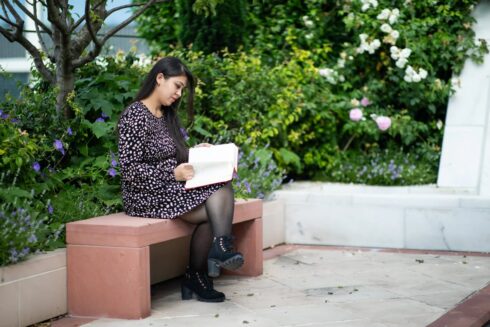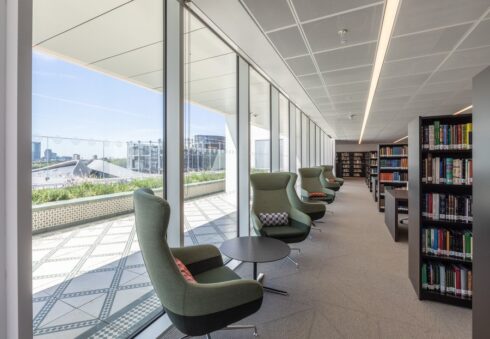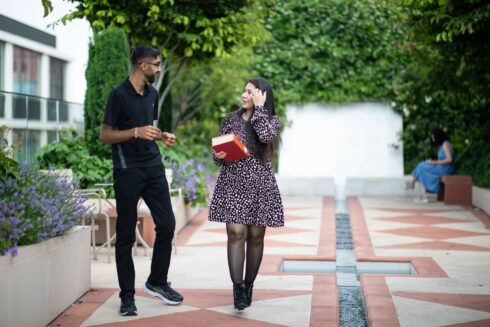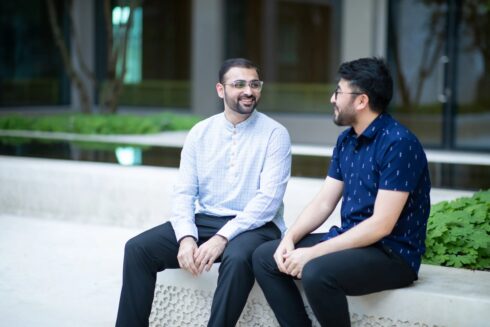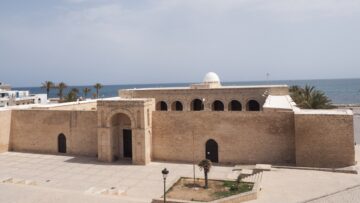Graduate Programme in Islamic Studies and Humanities
-
Status
Closed -
Date
16 Sep 2024 -
Location
London
Pre-sessionals
New students attend an induction and pre-sessional academic programme for around five weeks. Pre-sessionals introduce key skills and ways of thinking in the Humanities and Social Sciences, combined with practical orientations to life in London and at the IIS. Students arrive in London to begin pre-sessionals in mid-August, ahead of the first term of MA study which commences in September.
Two-year MA in Islamic Studies and Humanities
This programme is designed and delivered by IIS, and validated for the MA award by SOAS University of London.
- Year 1 lays the foundation with regard to knowledge and approach.
- Year 2 confronts broader thematic subjects and particular attention is devoted to cultivating research skills, culminating in a 10,000-word dissertation.
- Language training in Arabic or Persian continues throughout the two years. All students take Arabic unless they are already proficient, in which case they study Persian.
The programme is highly intensive. A typical week involves 9 hours of lectures and seminar discussions for subject modules; 6 or 7 hours of language classes; and 30 hours of independent study. Taught modules are delivered over three 12-week terms each year, following a prescribed curriculum.
Programme aims
- To engender a critical yet sympathetic examination of many of the issues that contemporary Muslims face; from the debate amongst Muslim intellectuals regarding the re-examination of aspects of the Islamic heritage to the challenges contemporary Muslim societies face in their endeavour to modernise and develop.
- To emphasise the analytical frameworks and critiques of the social sciences and humanities as they apply (or fail to apply) to the study of the phenomenon of religion in all its aspects.
- To integrate pertinent disciplines – e.g. history, anthropology, political science, philosophical analysis, linguistic and literary criticism – in the study of Muslim societies in order to promote an approach in which the disciplines are intertwined at their roots, to produce an integrated analysis of the subject, conceived as broadly as possible.
- To adopt a civilisational approach to the study of Islam. This premise has implications for the treatment of the subject matter. Instead of conventional divisions such as theology, law and mysticism, representing distinct religious interpretations of Islam, the programme treats these and other issues in the common framework of a cultural history. This means, first, that religious developments will be seen as part of the development of thought and culture in Muslim societies. Secondly, those aspects of culture, like art, poetry and architecture, which are not always treated on a par with doctrine, law or religious practice, will be so regarded in this programme. Thirdly, as culture cannot be studied in isolation from society, the programme will treat this interrelationship (of ideas and meanings to social and political forces) as one of the keys to an integrated understanding of the subject.
Enrichment programming
- Co-curricular activities equip students with field experience and applied skills:
- Summer language immersion, usually in Jordan or Iran.*
- Educational field trip to visit Islamic heritage sites of the Mediterranean, usually in Spain.*
- Leadership skills workshop and careers seminars.
- Training in Research Design and Methods.
- Field research for the final dissertation.
*In the event of travel restrictions due to unforeseen circumstances, including but not limited to a global pandemic such as COVID-19, the trip will either be cancelled or, where feasible, alternative arrangements will be made to take place in the UK or in an online environment. It is the students’ responsibility to obtain a Visa for all excursions abroad.


